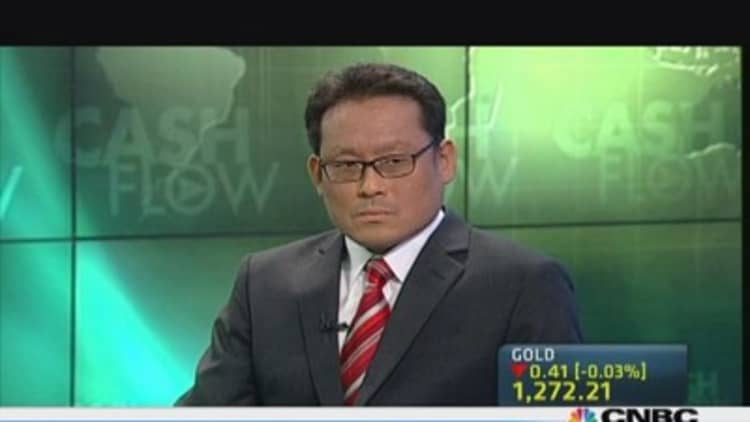New laws in Singapore imposing restrictions on foreign workers have sparked some concern about a rise in labor costs among small and medium-sized businesses.
According to the Association of Charted Certified Accountants (ACCA) and the Institute of Management Accountants (IMA), government spending and policy was one of the topics most talked about by businesses in Malaysia, Singapore and Pakistan in a quarterly survey of global economic conditions.
"In Singapore, the comments about government policy were mainly related to the restriction on numbers of foreign workers, causing concerns that labor costs would rise, but also included positive perceptions on such things as government incentives for SMEs [small and medium enterprises]," said the report, which was published on Thursday.
(Read more: For foreigners, has securing a job in Singapore just gotten harder?)
Singapore announced last month that firms with more than 25 employees must advertise vacancies for jobs paying less than 12,000 Singapore dollars ($9,685) a month on a new jobs bank administered by a state agency for at least 14 days before applying for an employment pass to bring in a foreign national. The rules come into effect in August 2014.

The government's immigration policies have become a contentious issue in the wealthy city-state, where an influx of foreign workers has pressured the public transport system and helped push up the cost of housing in recent years.
(Read more: Singapore home prices could fall 20% by 2015: Barclays)
Singapore has a population of roughly 5.4 million, up from about 4.03 million in 2000, according to government data. Non-residents make up more than a quarter of the population compared with less than a quarter in 2000.
"The traditional source of labor from outside the country is being tightened and that means a changed landscape for small and medium-sized firms," said CIMB Regional Economist Seng Wun Song. "The message is put better technology to use, pay low-paid workers better. All this adds up in terms of higher costs."
Analysts say higher labor costs is something the central bank is likely to watch closely, especially if companies pass on those costs to consumers, pushing up inflation in a city which has grappled with higher prices in recent years.
Singapore's headline annual inflation rate edged up to 2 percent in August from 1.9 percent in July.
(Read more: Singapore's 'volatile' growth data may last for a while)
Song says that a closer look at the inflation numbers shows that price rises in the services sector have picked up pace. Service-sector inflation edged up to 2.7 percent year-on-year in August from 2.5 percent in July.
"There will be an inflation impact from the changes in the labor laws, which is why the government is looking at staggered wage increases sector-by-sector," said Song.
According to the ACCA and IMA quarterly economic report, overall business sentiment in Singapore remains upbeat.
"Overall, businesses in Singapore were the most positive among the major ACCA and IMA markets towards their government response to the economic downturn, with 46 percent of SMEs rating this as good, far above the global average of 15 percent," Leong Soo Yee, Head of ACCA Singapore, said in a statement.
— CNBC.Com's Dhara Ranasinghe; Follow her on Twitter @DharaCNBC


